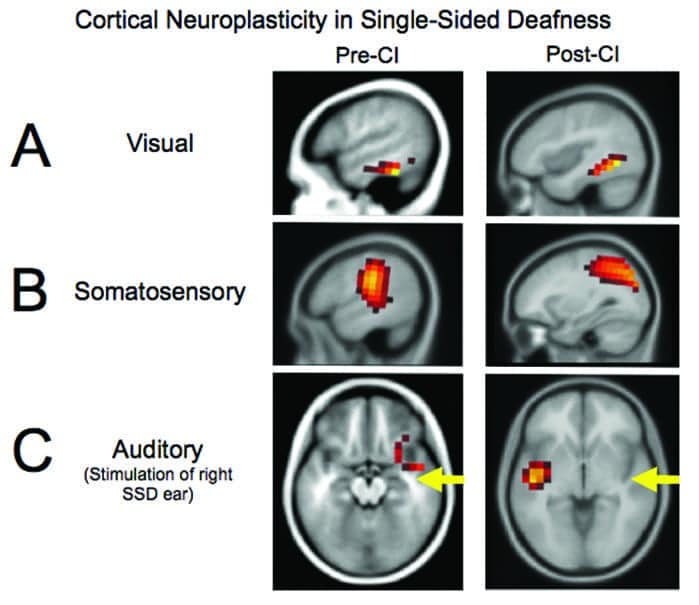Cortical Neuroplasticity in Hearing Loss: Why It Matters in Clinical Decision-Making for Children and Adults
With a better understanding of cortical brain changes associated with hearing loss, the potential to develop objective brain-based tools (ie, biomarkers) increases. These tools may help clinicians determine when a patient should receive intervention, what kind of intervention or rehabilitation would be ideal, and may offer the ability to monitor how well a chosen intervention or rehabilitation method is working. Prominent researchers Anu Sharma and Hannah Glick explain why.

